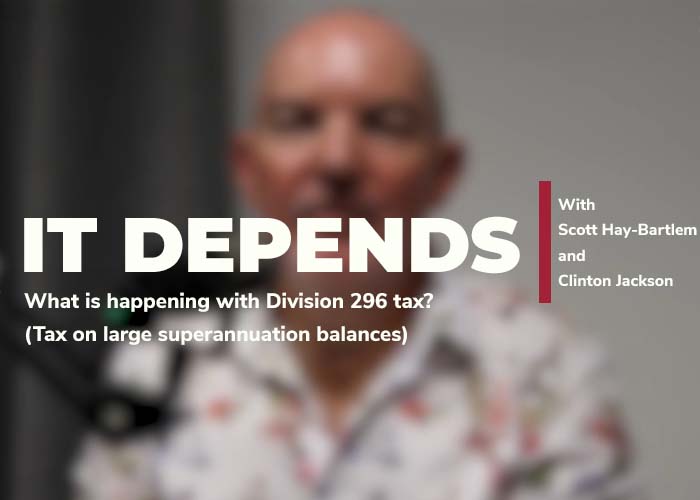The Property Law (Mortgagor Protection) Amendment Act 2008 (Qld) commenced on 12 December 2008. It has ramifications for a mortgagee, an attorney for the mortgagor, or a receiver acting under a power delegated to the receiver by a mortgagee when exercising power of sale under a mortgage.
Extension of Section 85 PLA
The mortgagee’s duty under section 85 of the Property Law Act 1974 (Qld) (“PLA”) “to take reasonable care to ensure that the property is sold at market value” has been extended to the attorney of the mortgagor and to a receiver exercising power of sale. This is significant where the mortgagor is not a company as previously a receiver would not ordinarily have been caught by section 85 PLA or subject to any similar duty under the Corporations Act 2001. The duty of care under section 420A of the Corporations Act 2001 only applies to a controller in relation to property of a company.
New Section 85(1A) PLA
The new section 85(1A) PLA, which commenced on 12 December 2008 states that, if the mortgage is a prescribed mortgage, the duty imposed by section 85(1) includes that a mortgagee or receiver must, unless the mortgagee or receiver has a reasonable excuse:
- adequately advertise the sale; and
- obtain reliable evidence of the property’s value; and
- maintain the property, including by undertaking any reasonable repairs; and
- sell the property by auction, unless it is appropriate to sell it another way; and
- do anything else prescribed under a regulation.
Section 85(1A) applies to mortgages entered into before or after 12 December 2008 but will not apply to an exercise of the power of sale in respect of a default pursuant to a notice of exercise of power of sale that expired prior to 12 December 2008.
A breach of section 85(1A) can result in a fine being imposed on the mortgagee or receiver. The maximum penalty if the contravention relates only to paragraph (e) is 20 penalty units and a maximum penalty of 200 penalty units if the contravention relates to paragraph (a) to (d). A penalty unit is currently $100.
Apart from the potential liability for a fine being imposed for a breach of the section a mortgagee might suggest that there is nothing remarkable in the obligations stipulated in section 85(1A). This might not always be the case.
Prudent mortgagees are accustomed to obtaining a current market valuation and advertising the property for sale. What is adequate advertising will depend upon, for example, the property and its location.
In relation to repairs, the legislation does not provide any guidance as to what constitutes undertaking reasonable repairs. This will depend upon the condition of the property, the nature of the works, cost and likely impact on market value.
In some situations a sale by auction might not be the best method of achieving market value. For example a sale by tender or sale by private treaty may be appropriate.
The onus will be on the mortgagee or receiver to establish “reasonable excuse” if they fail to comply with any requirement listed in section 85(1A). Problematically, the term “reasonable excuse” is not defined in the legislation.
Complying with the duty under section 85(1) by taking reasonable care to ensure that the property is sold at the market value may not provide a defence if the obligations under section 85(1A) are not satisfied.
Prescribed Mortgage
Section 85(1A) applies to a “prescribed mortgage”. Under Regulation 4 of the Property Law Regulation 2003 (Qld) (“Regulation”), a mortgage is a prescribed mortgage if it is a mortgage over residential land and the mortgagor’s home is on the land.
Under the Regulation, a residence means a building, or part of a building that is affixed to land, used for residential purposes and designed, or approved by a local government, for human habitation by a single family unit.
It does not matter that a residence is also used for a business purpose if the residence is primarily used as the mortgagor’s home. A home of a mortgagor means a residence on residential land that is occupied by the mortgagor as the mortgagor’s principal place of residence.
A residence does not stop being the mortgagor’s home only because the mortgagor stopped using the residence as the mortgagor’s home at the time the default occurred or at any time within six months before the default occurred.
The default referred to in section 85(1A) is the default that gives rise to the power of sale in section 83 of the PLA.
A mortgagee will need to be wary as a mortgage granted over a residential investment property or vacant land at the commencement of the mortgage may later become a prescribed mortgage if the residential land is primarily used as the mortgagor’s home at a later date.
The Regulations define residential land as meaning land or part of land on which a residence is constructed.
Depending on the facts, a mortgage over a farm or a commercial property may be a prescribed mortgage if the mortgagor’s home is constructed on part of the land.
Conclusion
Arguably the most significant aspect under section 85(1A) is that the mortgagee, attorney of the mortgagor, or receiver will have the onus of proving they had a reasonable excuse if they fail to comply with any requirement under section 85(1A).
It would be prudent to properly document and record the reasons for the decisions made in relation to the sale of the property. Carrying out proper enquiries and obtaining appropriate information from property consultants, valuers and real estate agents will be required.
The keeping of records evidencing the decisions made and reasons for the decisions will also be necessary.




